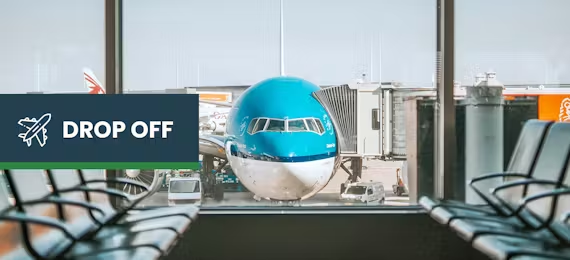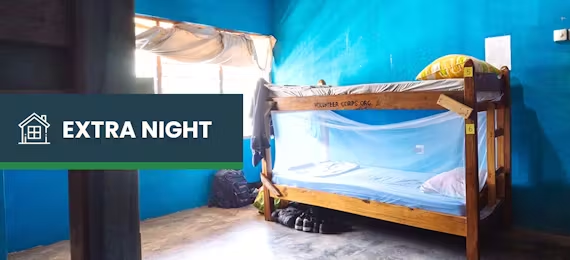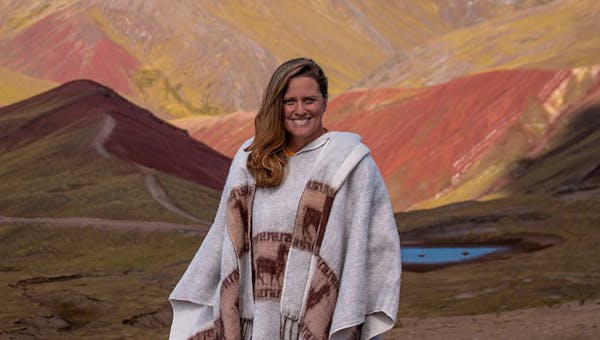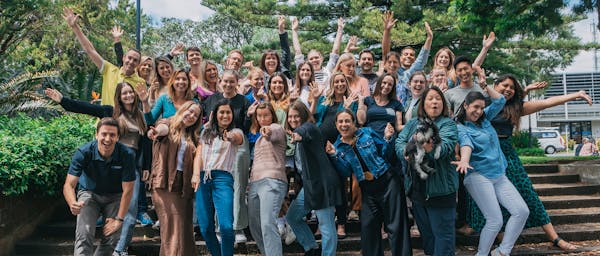This was my second IVHQ program and it was a much more challenging program than the previous one. Ghana is a more difficult country to manage in many ways from transportation to infrastructure to comfort. I'm certainly glad that the program provided transportation because otherwise it would have been problematic. I chose the Construction and Maintenance Program which was physically challenging for me as an older guy, but also satisfying contributing a small part to what will eventually be a new school building. The fact that the young children running around the school will likely be studying in the rooms that we were constructing is kind of amazing. The heat was probably the biggest challenge as February in Ghana is very hot and there is limited ability to find ways of cooling off. Most of the food that we had at the compound was excellent. In summary, it was a challenging program that was absolutely worth it.

Construction and Renovation Volunteer Project in Ghana - Accra Region
Purpose
Start dates
Duration
Volunteer hours
Age
Accommodation
Who is going?
Group video calls
Once you have secured your place, join regular video calls to meet your Program Manager and other volunteers before your trip.
This program is ideal for:
Volunteers with a good level of physical fitness who are willing to help out wherever it is most needed. No construction experience is necessary to volunteer on this project as you’ll work closely with the local team.
Project details
Handy with a hammer and want to get stuck into Construction and Renovation volunteering in Ghana? International Volunteer HQ’s Construction and Renovation project is a great way for volunteers to gain building experience while improving the infrastructure in rural towns. Volunteers work alongside locals to build, repair and upgrade clinics, community centres, toilet facilities and schools to make them safer, healthier and more functional for the people who use them.
What to expect and how you'll make an impact
Helping to build and renovate infrastructure is a tangible way to help local communities. By volunteering alongside locals to improve facilities in rural townships, you know you’ll be making a lasting impact for years to come.
As a Construction and Renovation volunteer you’ll follow local priorities and help build or upgrade the facilities of a range of community services. Volunteer work varies depending on placements, but can include:
- Painting
- Brick laying
- Plastering
- Digging
- Block shaping
- Carpentry
- Steel bending
- Mortar mixing
Volunteering hours are in the morning and evening, to avoid the hottest part of the day. You can supplement your time by contributing to other projects between shifts if you like.
Volunteers should bring a flashlight, a lightweight scarf for sun protection, a hat, insect repellent, gloves, working boots and water bottle.
Why do Construction and Renovation volunteering in Ghana with IVHQ?
As a volunteer builder in Ghana you’ll be adding value to the local community, while also developing personally and professionally by:
- Helping develop community infrastructure
- Supporting locally-driven initiatives
- Developing your communication skills
- Gaining construction and renovation experience
- Immersing yourself fully in the Ghanian way of life
- Exploring Ghana’s rural communities
Volunteer requirements
Volunteers under the age of 18 must be accompanied by a parent or guardian, provide IVHQ with parental consent in order to participate on the program, and may be asked to provide additional document to the local team.
Those aged 16 or 17 on their start date, if unable to obtain a criminal background check, can provide two character reference letters instead.
All volunteers are required to pre-arrange a visa to enter Ghana.
Volunteers aged over 18 on their start date are required to provide a criminal background check to IVHQ before departure.
All volunteers must speak English and have adequate volunteer travel insurance
Are you eligible to volunteer?
Submit a free application so we can confirm your eligibility and check availability for your preferred dates.
Not sure which program to join?
Get personalized recommendations >
Who is going?
Group video calls
Once you have secured your place, join regular video calls to meet your Program Manager and other volunteers before your trip.
Ghana photo gallery








Academic course credit

Academic course credit
Gain course credit from your college or university and meet your academic requirements when completing a volunteer abroad program with International Volunteer HQ!
Learn about course creditLocation

Location
When you volunteer in Ghana with IVHQ, you’ll get the opportunity to experience the country’s vibrant, diverse culture and get to know the people who are said to be some of the friendliest locals in Western Africa. While Ghana is a rapidly developing country which has seen an economic upturn in the last decade, there are still many places where people face the challenges poverty brings. This is especially true outside of the major cities in the rural areas where volunteers are most needed.
Rural volunteer placements are typically in low-income areas which often lack the funding, labour and resources they need to develop their communities. By choosing to volunteer in Ghana you can make a real difference by assisting with local initiatives that seek to improve the quality of life for the people who live there.
Arrival and orientation
The program orientation begins on the 1st and 15th of every month, or just on the 15th of every month for those taking part in the Healthcare Outreach & Education project. Volunteers need to arrive in Accra on the day before orientation.
After you have registered for the program, please book your flights to arrive at Kotoka International Airport (ACC) in Accra. Your airport pick-up is included in your Program Fee.
When you arrive, you will be greeted at the airport by a member of the local team and taken to the volunteer accommodation in Accra. Please note that you will stay in Accra city for one night, unless it is the weekend, in which case you will stay in the city until Monday morning. Once you have completed your orientation, you will move to a rural community in the greater Accra region where you will be placed for the remainder of your stay. Your accommodation is covered by your Program Fee and includes the night before your program orientation.
If you are travelling in Ghana prior to your volunteer program, we can arrange for you to be picked up at a prearranged location in Accra on the day before your program orientation.
Orientation is hosted by our local team in Accra and begins on the morning of your chosen start date. This covers everything you need to know for your volunteer program Ghana – an introduction to Ghana, culture and customs, rules and expectations, safety, travel opportunities, and an introduction to project and placement. The orientation will also give you a chance to meet other volunteers and swap contact details for weekend travel and socialising.
After orientation you will be taken to your placement in a rural Ghanian community.
Volunteer schedule example
First Day
On the first day of volunteering, volunteers will be escorted to their placement by a local coordinator and introduced to the placement staff they will be working with. A typical daily schedule would be as follows:
| 7:30 AM | Breakfast at the volunteer house. |
| 8:00 AM | Travel to placement to join local placement staff and begin work on your project. There is usually a tea break and a lunch break. |
| 2:00 - 5:00 PM | Work at the project usually ends and you are free to relax and use the remainder of the day as you wish. |
| 6:30 PM | Dinner at the volunteer accommodation. |
Please note this schedule can vary depending on your project and placement.
Weekends
During the weekends, volunteers have spare time and usually just relax or take the opportunity to discover the brilliant colours, music, food, fashion, history and nature that combine to make Ghana a true feast for the senses. Head to the capital city of Accra to see markets, museums and live music, or take a trip to Cape Coast and Elmina where you’ll find the Elmina Slave Castle - the first trading post built South of the Sahara - and pretty, palm-lined beaches where you can relax in the sun. You can also spend long weekends visiting other Western African countries like the neighbouring nations of Côte d’Ivoire and Togo.
Looking for more ideas of things to do in Ghana? Check out our Ghana Travel & Tours page!
Accommodation and WiFi
You’ll stay in a volunteer house with other volunteers. There are separate rooms for male and female volunteers with shared common room and toilet facilities. Living is basic but the majority of volunteer houses have electricity, while only few have running water. Power cuts are common in Ghana and most rural houses do not have running water during times of drought. Pillows and sheets are provided, however it is recommended that you bring your own towels and mosquito nets - or buy them in Ghana.
There is WiFi access available at local cafes and restaurants in a nearby village, which is a 15 to 20 minute walk from the volunteer accommodation. You can also purchase a local SIM card with data for an unlocked mobile phone to keep connected.
Meals
Volunteers in Ghana are served three meals per day. Breakfast generally consists of tea and coffee, and a hot breakfast. A typical lunch and dinner can include meat and vegetables with rice or noodles. If you have special dietary requirements, please let us know ahead of time so that we can make arrangements for you.








Pricing
Spots are limited. For a Registration Fee of just US$299 (approximately £237) you secure your spot and unlock all our preparation and training tools.
You don't need to worry about paying your Program Fee until you get closer to your start date.
Duration |
Program FeeDue 30 days before you start, or within 48 hours if you register inside of 30 days. Covers the cost of hosting you.
|
|---|---|
| 1 week | $459 Equivalent to $66/day |
| 2 weeks | $712 Equivalent to $51/day |
| 3 weeks | $921 Equivalent to $44/day |
| 4 weeks | $1,130 Equivalent to $40/day |
| 5 weeks | $1,339 Equivalent to $38/day |
| 6 weeks | $1,548 Equivalent to $37/day |
| 8 weeks | $2,026 Equivalent to $36/day |
| 10 weeks | $2,504 Equivalent to $36/day |
| 12 weeks | $2,994 Equivalent to $36/day |
| 16 weeks | $3,998 Equivalent to $36/day |
| 20 weeks | $5,002 Equivalent to $36/day |
| 24 weeks | $6,006 Equivalent to $36/day |
- All programs attract a Registration Fee of US$299 (approximately £237) in addition to the Program Fee. This covers all pre-departure support services.
- A 5% international banking fee is added at point of payment.
- Recommended spending money: Volunteers in Ghana generally find US$50 to be sufficient for weekly expenses, including water, toilet paper, transport and miscellaneous spending.
- Meals
- Airport pick-up
- Transportation to and from placement
- US$69 per week to cover the additional supervision, materials and logistics involved in your project
- Accommodation
- 24/7 in-country emergency support
- In-country program orientation
- Pre-departure support from your Program Manager
- Personalised preparation tools, guides and check lists
- Access to IVHQ’s preferred insurance and flights partners
- Comprehensive in-country day to day support and guidance
- Certificate of International Volunteer Service
Learn more about what's included in your IVHQ Registration Fee and Program Fee.
- Return airport transfer when your program finishes
- Flights
- Visa (if required), travel insurance (mandatory), vaccinations, criminal background check.
- Personal spending money for snacks, laundry, public transportation, drinks and leisure activities during your free time.
Popular add-ons & experiences in Ghana
Take your volunteer experience to the next level with these popular add-ons and experiences. Explore your options below and learn how to book them once you've been accepted onto the IVHQ Ghana program.

Enjoy a stress free ride from the volunteer accommodation back to Kotoka International Airport arranged by our local team.

Arriving early or departing a few days after your program finished? Book your extra nights of accommodation.
Check what's required to visit Ghana
Safety and support

Safety and support
IVHQ follows best practice and industry-leading health and safety procedures, which are regularly reviewed and optimized as part of the B Corporation recertification.
- All volunteers encouraged to complete our interactive pre-departure training.
- All local teams trained on best practice volunteer management & First Aid.
- All IVHQ programs are required to adhere to IVHQ's Risk Management Policy.
- All volunteers have access to 24/7 in-country support from our local team.
Essential country information
Essential country information
| Capital | Accra |
| Population | 30.42 million |
| Languages | English |
| Currency | Ghanian Cedi (GHS) |
| Time zone | UTC+00:00 |
Weather and climate
Weather and climate: Ghana has a tropical climate and the average temperature falls between 21°C to 28°C (70°F to 82°F). In the north, there is a rainy season from April to June and September to November. The rainy season in the south lasts from April to mid-November. The weather is typically humid however, over the dry season, desert winds in the north can create cooler evenings and a drier atmosphere.
What recent volunteers said about their IVHQ experience
In 2023, I had the incredible opportunity to volunteer in Ghana, helping the local community build schools. It was one of the most important experiences of my life, allowing me to connect deeply with the people, especially the children, whose energy and kindness motivated me every single day.
The accommodation, the people, and the overall atmosphere were amazing. I felt truly welcomed and inspired throughout the experience. The only challenge I faced was that, as a woman, I wasn’t always given the same opportunities to actively participate in the work. I had to push myself and insist on getting more involved. However, this taught me a lot about resilience, cultural differences, and the value of perseverance. This experience has left a lasting impact on me, and I’m sure that in the future, I will do it again.
I feel like I truly was immersed in the culture here, and I felt that I made an impact. I really think that everyone should do a program like this at least once in their lives. It broadens your perspectives and makes you grateful for what you do have. And gives you insight to how people with nothing, can still be happy.
Honestly, this experience was amazing! I got to meet amazing people, learn new skills, and step outside my comfort zone. It gave me a fresh perspective, and I felt like I was actually making a difference.
To read all reviews, visit our reviews page.










